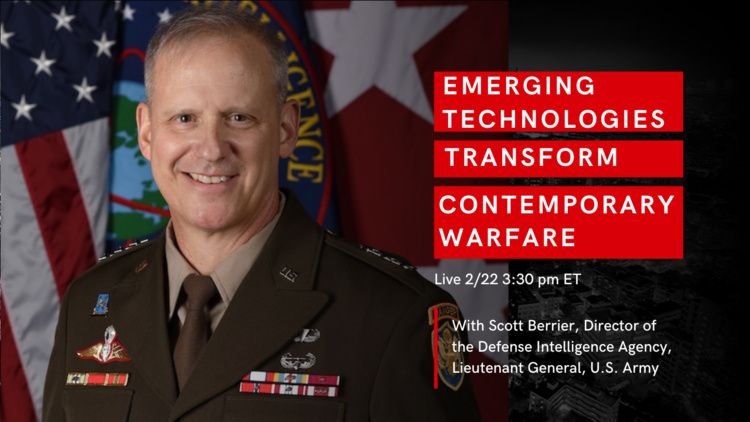
The Implications of Emerging Technologies on Contemporary Warfare
Since the terrorist attacks of 9/11, the emergence of cyber, drones, and other remote-capabilities have afforded militaries greater standoff on the battlefield. Some experts characterize this development as a “Revolution in Military Affairs” that changes not just the character of war, or how it is fought, but the nature of war, or why it is fought. Other experts are doubtful, suggesting war has always been, and always will be, a clash of wills between adversaries pursuing political objectives. In this presentation, U.S. Army Lieutenant General Scott D. Berrier, Director of the Defense Intelligence Agency in Washington, D.C., will navigate this debate by addressing the implications of emerging technologies on the balance of power between countries during war. Drawing on nearly forty-years of military service, LTG Berrier will also relate technological developments for war to emerging trends in global politics. Following a brief introduction by U.S. Army Lieutenant Colonel Paul Lushenko, a General Andrew Jackson Goodpaster Scholar at Cornell University and Deputy Director of the Tech Policy Institute at the Jeb E. Brooks School of Public Policy, LTG Berrier will deliver his formal remarks. Professor Sarah Kreps, Director of the Tech Policy Institute, will then moderate a discussion with LTG Berrier, posing questions from faculty, staff, and students at Cornell University’s central campus as well as its satellite and virtual campuses.